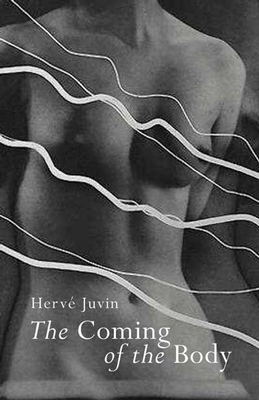 The Coming of the Body
The Coming of the Body
We are not the same creatures we were a hundred years ago, claims French critic Hervé Juvin. Advancing life expectancies, the cosmetic industry’s ministrations, the rise of plastic surgery, botox and HRT and new technologies of pleasure – all have enabled a new kind of body, and with it an entity that would have seemed extraordinary and alien to our forebears. The promise of the perfectibility of the human being, the forging of a new man through industry and technology, has long been considered a Communist or at least Modernist notion that we have sensibly discarded, but Juvin sees it fulfilled under neoliberal capitalism, in its postmodern culture.
That’s as maybe – but this new man, this “last generation” – which corresponds, unsurprisingly, to the baby boomer generation that took power in the 1980s – has no teleology, no future, aims at nothing other than its own self-preservation and pleasure. The body is sacrosanct, so the new kind of man means the end of dreams of a fairer society – that would threaten the body’s inviolability. It invokes in its defence the catastrophes of the 20th century, but “that must never be allowed to happen again” has become “nothing must happen again’”. The society of the body abolishes past and future out of egotism, more than humanism. “It dreams that the world stops with it.”
So although, in his linking of the Stalinist new man to the perfect bodies of neoliberalism, Juvin might seem aligned with the anti-utopian strain in much current thought (a position articulated most famously by John Gray) he differs from them in considering the future’s absence to be a loss, not a gain. A world devoted to pleasure “breaks with a thread which runs through the whole history of the west – the view that civilisation really is worth more than the lives of its enemies ... that progress justifies the sacrifice of human life.”
Similarly, Juvin wonders whether “‘health, safety, pleasure’ has acquired the meaning that ‘liberty, equality, fraternity’ has lost” – but are they really mutually exclusive? In an unjust world, an attempt to obliterate suffering for some – Juvin notes the casualty-free (for “our” side) wars of NATO and the US – is narcissistic and cruel, but need it be under other circumstances? Politically, The Coming of the Body is slippery in the extreme, and a socialist or a neoconservative could each find succour in its elegant scorn. When he writes critically of a Europe that “takes it for granted that nothing is worth more than a life”, he could easily be doing so in aid of George W Bush’s Manichean world of good and evil as much as in favour of egalitarian solidarity.
Nonetheless, whether aiming with an arch, erudite wit at the ’60s generation’s surgically augmented self-obsession, the smugness of Amelie, “sexagenerian supergroups”, superstars shopping for adoption in sub-Saharan Africa or the hedonistic treadmill of “pleasure as a duty”, this book is a pleasure in itself, a deliciously quotable treatise that need not be swallowed whole.

